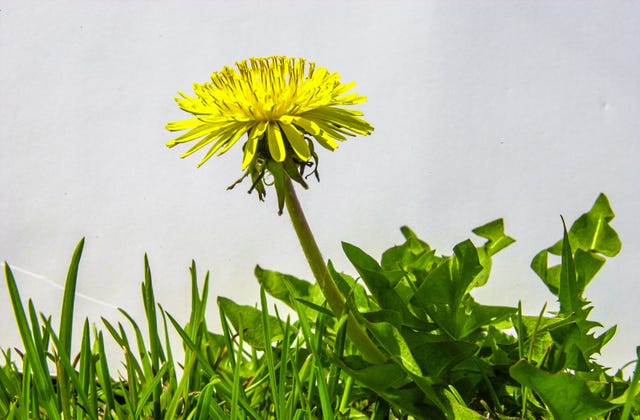Should You Pee on Your Lawn?
Does urinating in the yard help to fertilize it or not? Experts here answer this silly question.

Ostentatiously whizzing on your lawn, refreshing as it might be, may or may not be good for the grass depending on your approach, but we can tell you one thing for sure: It’s unlikely to help your reputation with neighbors, postmen, or wandering Girl Scouts.
Urine, as it happens, contains a number of beneficial nutrients commonly found in commercial fertilizer. “It has a fair amount of nitrogen, a little bit of phosphorus and potassium, which are all needed for a healthy lawn,” says Owen Duckworth, associate professor of biogeochemistry at North Carolina State University. Don’t reach for that zipper just yet, though. Urine also has a high salt content, which, as anyone with a dog, a lawn, and insufficient will to keep the two apart will tell you, can draw moisture from plants and leave unsightly dead spots scattered around an otherwise lush, green carpet. “Urine is simply too concentrated for most plants to withstand when either applied to the leaves or even to the soil around especially younger plants,” says Ray Weil, a professor in the Department of Environmental Science and Technology at the University of Maryland. As a result, repeatedly hosing down your yard from the front porch is likely to be counterproductive.
Suppose, however, that one were able to administer one’s renal output widely and evenly, perhaps by affixing a deluxe showerhead to the relevant anatomy and spinning on a lazy Susan? Professor Duckworth offers a safer, more practical solution: “Let’s say for the sake of argument you peed in a watering can and used it to disperse it. I don’t think you would do any damage to your lawn.” Or your relevant anatomy. Weil, for his part, seconds the watering-can suggestion, and goes one better. “The simple solution is dilution,” he says. “I generally recommend a 2-to-1 dilution to be safe. There are many ways to cheat this, but the simplest is to put one part urine in a watering can and then two parts water, stir it up, and sprinkle it on the lawn.”
As it happens, an outfit called the Rich Earth Institute is already passing out pee to Vermont farmers, who stream as much as 1,000 gallons of the stuff over a single acre of hayfield. The all-natural, nitrogen-rich liquid helps plants grow just as synthetic fertilizers do, all while saving water and cutting down on pollution, says Abe Noe-Hays, the institute’s research director. And where, pray tell, does a well-meaning environmental group obtain the requisite tanker loads of liquid gold? “We have about 100 households involved,” Noe-Hays says. “We collect urine from people using specialized toilets or portable urinals.”
Sounds simple enough, and it’s an approach you can adopt for yourself—on your lawn and beyond says Weil, each of whose family members has a designated collection jug at home. “There is certainly no need for a suburban family to ever buy any fertilizer,” he says. “Diluted urine grows wonderful vegetables.
